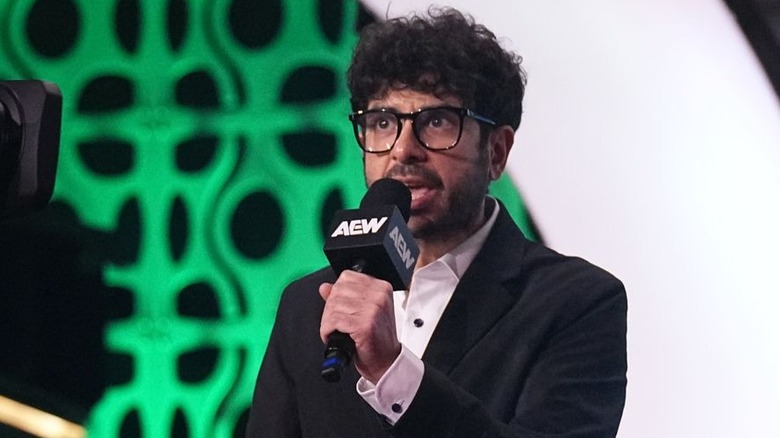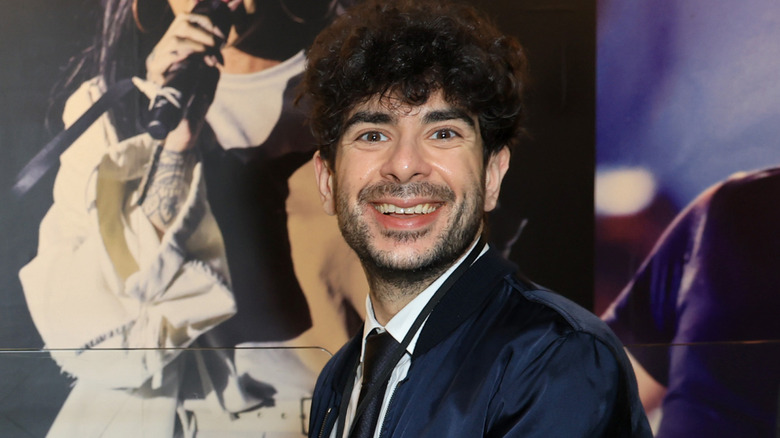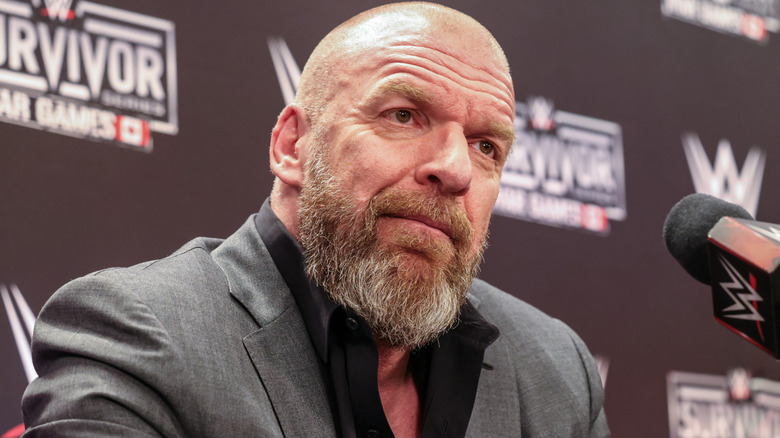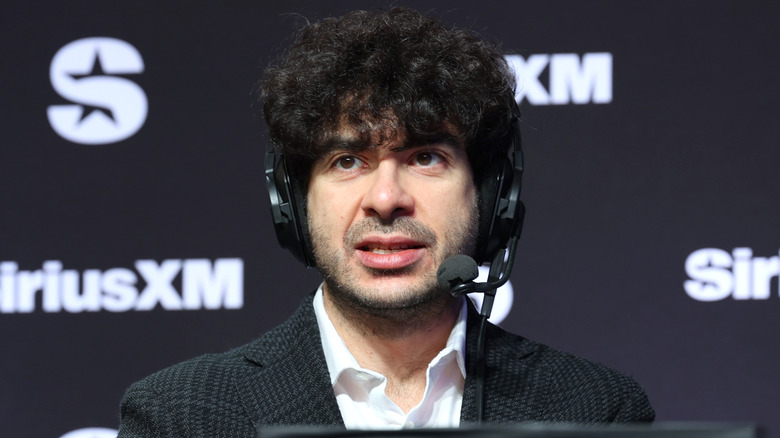Dave Meltzer Breaks Down AEW's Financial Viability Ahead Of Move To Streaming
January 2025 will mark the beginning of a new era for AEW, as the company begins its new media rights deal with Warner Brothers Discovery, which will also see "AEW Dynamite" and "AEW Collision" simulcast on the MAX streaming service. AEW's back catalogue of events is also scheduled to upload to MAX throughout 2025, and pay-per-views will also air live later on in the year, but the perception of AEW as of late has not been good. In the latest Wrestling Observer Newsletter, Dave Meltzer examined the highs and lows of AEW's current product ahead of the move to streaming.
Starting off with something that won't matter as much come the new year, but is a tell-tale sign that things aren't going well, is the TV ratings. The most glaring example was the December 6 "AEW Rampage," which many, including Meltzer himself, claimed to be the best episode of the show this year, but even in its regular timeslot drew a total of 177,000 viewers, a 0.04 in the key 18-49 demographic, and most alarmingly, only 9,000 people in the 18-34 demographic (5,000 women and 4,000 men).
Meltzer did note that the show is getting cancelled at the end of the year, and one show shouldn't ring too many alarms, but both "Dynamite" and "Collision" have experienced huge drops in the past 12 months. For the most recent shows at the time of writing (December 7 for "Collision" and December 11 for "Dynamite") both have lost over half of the 18-34 audience compared to the same episodes in 2023, a time that many people also saw AEW's ratings as a big problem.
There Are Some Positives for AEW
It's not all bad news for AEW, as Meltzer did note that after "WWE Raw" moves to Netflix, "Dynamite will likely become the number two entertainment show on cable behind "WWE SmackDown," and that some elements of the company are steadying. One of the other major positives for AEW is the recent pre-sale for All In: Texas on July 12 became the third-highest grossing event in company history behind the previous two All In events at Wembley Stadium, making it the highest-grossing event in North America for the company with seven months left to go before bell time.
However, the idea of trying to make All In:Texas AEW's version of WrestleMania hasn't fully resonated with people. Despite the money made from ticket sales, the belief amongst people is that the show has only sold around 6,000 tickets so far at an extremely high price, with the perception of many people being that if it doesn't hit at least 20,000 it won't be classed as a success, no matter how much money is grossed at the gate.
The other major positive is the value of wrestling to networks, and the aforementioned deal with WBD, which guarantees AEW to not only be profitable for the next three (and if things go well four) years, but to be the most profitable wrestling company not named WWE in history. There are still negotiations with other networks regarding "AEW Shockwave" that could act as the spiritual successor for "Rampage," but with so much decline within the company right now, Meltzer questions where AEW might end up if WBD doesn't pick up the company for another deal at the end of 2027 (2028 being the other end point if WBD picks up the one-year extension).
AEW's Biggest Problem: They Aren't WWE
That might sound strange on the surface, but as the challenger brand and the firm number-two brand, AEW's biggest problem is the comparison to WWE, something Meltzer believes they are no longer in good position of given their decline and WWE's rise in popularity. While 18-34 has been an area that AEW have been struggling in, WWE have been thriving, an area Meltzer believes is even more pivotal than the 18-49 demographic, as the younger audience will always choose whatever is "cool" at the time.
In order to become "cool," Meltzer knows there is no easy fix. The idea of pushing younger talent will hurt numbers at first, and it could very well pay off, but their perception is hurt because they aren't in WWE. As for pushing older talent, that won't do it either, and for Meltzer, AEW has pushed far too many veterans in recent years, to the point where they can't move forward and that the product is almost the same as it was when it started.
The main thing that can give AEW a real shot in the arm is star power, similar to how Hulk Hogan made WCW a real competitor in the '90s, which will once again be a long-term thing if younger talent is pushed. Plus, Meltzer feels like there isn't anyone that could actually do it for AEW considering neither a Roman Reigns or a Cody Rhodes will make the jump, meaning that, while they have to get "cool" stars and get AEW in more visible places for the world to see them, they also need to make sure they aren't seen as the "loser" brand in an industry where Meltzer feels like everything is down apart from main roster WWE (including "WWE NXT").
So What Can AEW Do To Fix Their Issues?
All in all, Meltzer knows AEW has deep pockets thanks to the Khan family, and the money it will get from TV and streaming, but even if people call this phase for AEW a "transition period," the problems are evident. The company can't stay the same, as recent declines have shown, but steering away from the current product is a big gamble. AEW needs to be seen as cool, but there is no short term fix to make them cool. So what can they actually do?
For one, Meltzer feels that the live experience at TV tapings needs to be improved by having more of the top stars present each week, and even potentially doing big dark matches. They have been better at advertising people and matches ahead of time, but more direct promotion needs to be done, and the issue of advertising stars on posters who aren't going to be at the shows needs to be eradicated. Booking could also be freshened up, and the company's P.R. needs improving in order to restore their public perception as a challenger brand, rather than a distant number-two.
Meltzer believes that the jury is out on All In: Texas, and that it could work in the end, but the idea of booking a big stadium show in the United States isn't a guaranteed success unless its main roster WWE, which AEW is not. If anything, Meltzer believes that AEW are closer to WCW in the early '90s prior to Hogan's arrival, a company that has some highlights, and some great weeks at times, but one that has a lot of easily fixable mistakes that aren't currently being treated.



